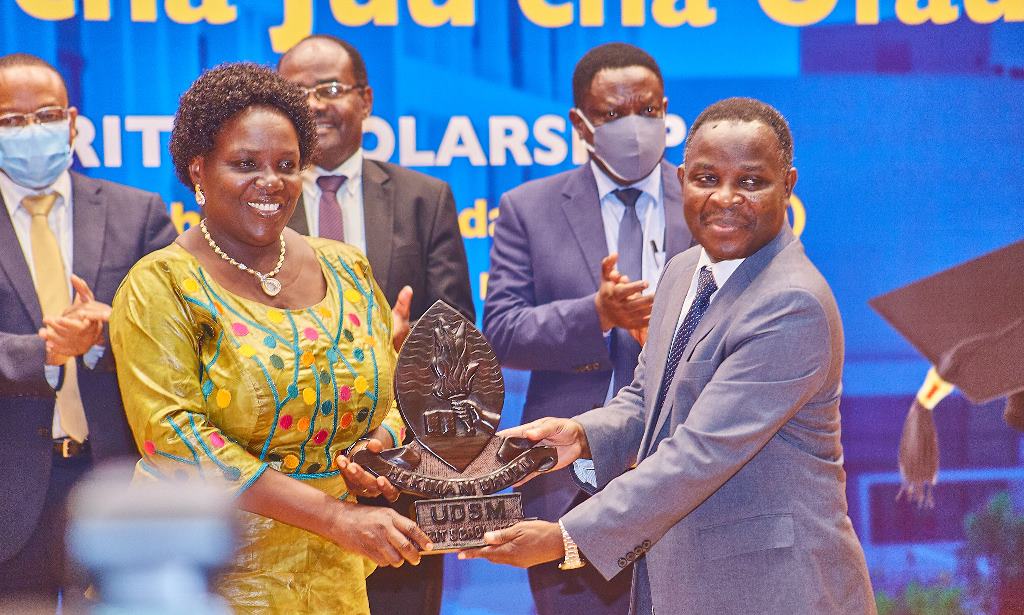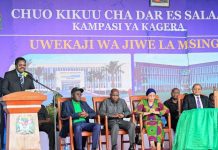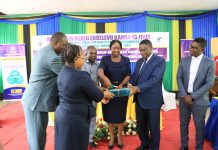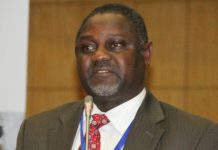AfricaPress-Tanzania: RECENTLY, the University of Dar es Salaam (UDSM) launched a special scholarship programme for undergraduate and postgraduate students known as the University of Dar es Salaam Merit Scholarship.
At least 65 students have scooped merit scholarship. Selection takes into account gender equality with emphasis on science and technology studies and nationality for funding students from outside Tanzania.
Fifty per cent of all beneficiaries are female students. At the outset, UDSM set a target of setting aside more than 237m/- per annum for the merit scholarship. It is an initiative of the management of UDSM to support the government to invest more in the education of Tanzanian youths at all levels of education, including higher education.
The UDSM merit scholarship also contributes to the development of science and technology for Tanzanian youths. There is no doubt after graduation UDSM merit scholarship beneficiaries will make a significant contribution to the development of the country in all sectors of the economy, including the manufacturing sector.
UDSM Vice-Chancellor, Prof William Anangisye, says merit scholarship will also increase the number of female students enrolling on science and technology courses and also actively support the government’s stand on the teaching of science and mathematics especially for female students.
Prof says funding is part of UDSM’s corporate social responsibility for Tanzanian children in urban and rural areas. It should be noted that since its inception, UDSM has continued serving all Tanzanians regardless of their socioeconomic backgrounds. Funding higher education students is a system of some of the world’s most prestigious universities.
Many scholars from UDSM and other universities in Tanzania are the beneficiaries of such a system especially in countries like the United States, The Netherlands, the United Kingdom, Germany, etc. According to Prof Anangisye, beneficiaries of UDSM merit scholarship are in two main categories which are the Tanzanian youth with high performance in Form Six science exams (those who enrol in undergraduate studies) and young Tanzanian high achievers and who will be selected to enrol in postgraduate degrees and master’s degrees.
UDSM offers also international Kiswahili scholarship to promote Kiswahili internationally. It has established international Kiswahili scholarship offered to students from African countries. The scholarship is for students who want to study proficiency in Kiswahili. In the 2020/21 academic year UDSM has sponsored three students – Julius Matovu from Uganda, Daniel Kotey from Ghana and Vedaste Habumurey from Rwanda.
Moreover, UDSM funds students from South Sudan to study a bachelor’s degree in Kiswahili at UDSM. Implementation awaits the completion of an agreement between the governments of Tanzania and South Sudan on the implementation of a previous agreement on the teaching of Kiswahili in South Sudan.
President John Magufuli used to say in his speeches that “Tanzania will be a donor country.” UDSM has started putting this in practice. Merit scholarship beneficiaries are required to continue studying hard so that they don’t miss this rare opportunity as there is no ‘eating duck’ at universities apart from working hard.
It should be that by initiating this funding UDSM recognises the potential to open more opportunities for beneficiaries. UDSM is the oldest, most vibrant and prestigious university in Africa.
It has become the first education facility to establish merit scholarship. The launch of the merit scholarship was graced by Minister for Education, Science and Technology, Prof Joyce Ndalichako, who was the guest of honour, Permanent Secretary Ministry of Education, Science and Technology, Dr Leonard Akwilapo, Deputy Vice-Chancellor (Academic), Prof Bonaventure Rutinwa, Deputy Vice-Chancellor (Administration), Prof David Mfinanga, Deputy ViceChancellor (Research), Prof Bernadeta Killian, and heads of educational institutions in the country.
Prof Ndalichako said in professional matters he would not be joking and would not interfere in any professional matters.
“I have no mercy on issues of professionalism.” She urged other higher education institutions to take a leaf from UDSM by sponsoring Tanzanian youths and encourage more students to love and study science subjects that would contribute to Tanzania’s industrial country.
The government recognises the importance of the education sector and its contribution to development. To be able to achieve or bring about development, there must be human capital – people who are able to use resources to bring about development and contribute to Breakthrough in education as UDSM launches merit scholarship the country’s middle-income economy based on industrial principles.
Human capital is not only a criterion for national development, but also a good environment to groom the talents of Tanzanians with a positive attitude towards development. Educational infrastructure includes preserving and developing the environment from primary to university level, involving the private sector and civil society organisations, including religious institutions that play a great role in the education sector to promote knowledge and skills.
Chapter Three of the CCM Manifesto 2020-2025 describes an education plan on how the provision of quality education for all groups will be implemented. This is a continuation of the CCM Manifesto 2015-2020.
In strengthening education in the country and as part of the implementation of the manifesto various steps have been taken, including providing free education up to secondary level (from primary to Form 4), improving the teaching and learning environment and employ more teachers at all levels of education.
There has been an increase in the number of tertiary students in the country, which in 2015 at least 65,064 students enrolled themselves on various university courses and in 2020 at least 87,813 students were on various university courses.
In addition, the scope of issuance of higher education loans has increased from 98,300 students who received loans in 2014/15 to 130,883 students in 2020. Even so a loan budget increased from 325bn/- in 2019/20 to 464bn/- in 2020/21.







